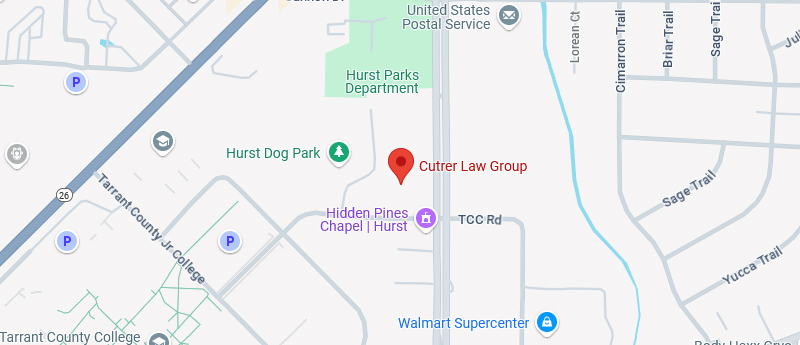How Does Texas Make the Initial Child Custody Determination?
More than ever, divorced parents moving from state to state (and internationally) are increasing, and child custody, which includes crossing state lines, is causing many legal conflicts and costly battles.
Most states follow a uniform law known as the Uniform Child Custody Jurisdiction and Enforcement Act (UCCJEA), which helps determine the appropriate jurisdiction in these complex custody matters.
Depending on your case’s unique facts, the Uniform Child Custody Jurisdiction Enforcement Act usually defines which state has custody jurisdiction over your case. Also, when this determination is made, the other states involved will recognize and follow the decisions handed down by the state determined to have legal jurisdiction over your case.
Texas Family Code 152.201 of the UCCJEA states that a court may rule on custody issues if your Child:
- Has lived in that state for six months or longer and that the state of Texas was your child’s home within six months before the commencement of custody case.
- Was living in the state before they were wrongfully abducted elsewhere by the other parent seeking custody in that state.
- Has an ongoing and established relationship with family, relatives, teachers, etc. and, ties, or attachments in the state
- Was abandoned due to an emergency and is now safe in the current state but could be in danger of neglect or abuse in the child’s home state.
This issue is usually legally complex, and if it pertains to you and your child, the professional, knowledgeable guidance of a skilled interstate child custody lawyer is mandatory.
Can I Modify an Existing Child Custody Order If I Wasn’t Made in Texas?
Suppose temporary emergency jurisdiction is absent from your case. In that case, Texas cannot usually modify any child custody decision made by the other state’s court unless the court of this state has jurisdiction to make an initial custody determination.
Usually, one of the following things must occur:
- The other State determines that it no longer has continuing jurisdiction or mandates that Texas would be a more effective and convenient forum.
- The court determines that the child and its parents don’t presently live in the other state.
In some cases, “temporary emergency jurisdiction” may be legally utilized, but it is reserved for extraordinary circumstances. Let’s say the child is abandoned; then the court may assert jurisdiction based on that fact or that the child requires protection because of a threat or subjected the child to mistreatment or abuse.
If temporary emergency jurisdiction is to be declared, your empathetic and highly skilled child custody lawyer will provide sufficient evidence proving the child needs immediate help and care. Changing your current child custody agreement will be legally challenging if this cannot be done.
How Should I File My Out-of-State Custody Case, and What May It Involve?
In these cases, you would file your case in your child’s home state. However, it’s not usual for parents to disagree over which state their child’s home state is; therefore, they may both try to file for custody where they currently live.
That said, the laws do not allow two states to handle the same case simultaneously. So, when you and your spouse both file, the judges from both states will communicate and decide which state should handle the case; one of the main determining factors they will use is what’s in your child’s best interest.
Commonly, if your custody arrangement is made in another state, it will include the same factors as a standard custody agreement, such as:
- Who has legal and physical custody,
- Parenting time scheduling and visitation rights.
- Co-parenting provisions, if they are called for.
- Any expenses that may go beyond the determined child support and more.
You must also note that parents who live in different states can receive joint conservatorship of their child. However, this agreement usually has a different structure than when the child’s parents live in the same state.
You must be aware that drafting a child custody agreement between Texas and another state is always legally complex, and you must have a professional child custody lawyer who is well-versed in all the legal procedures involved with crossing state lines.
Does the UCCJEA Cover All the Legal Issues Affecting My Child?
The simple legal answer is no, it does not. The UCCJEA usually only applies to any legal action that involves a “child custody determination.” A “child custody determination” is a judgment, decree, or any court order that provides for your child’s legal, physical custody, or visitation. Generally, it will cover permanent, temporary, initial, and all other modification orders pertaining to custody.
Under the court’s rulings, “Legal custody” means managing the conservatorship of your child. “Physical custody” covers everything that pertains to physical care and supervision of your child, and “visitation” means possession or access to your child.
Some examples of Issues not covered by the UCCJEA include:
- All aspects of adoptions.
- Authorizations are needed for emergency medical care for your child.
- Parent’s travel expenses so they can visit their child.
- Child support, etc.
Other laws apply when crossing state lines, such as the Uniform Interstate Family Support Act (UIFSA), which covers all issues about child support.
Divorce and custody issues are complex enough, but when two different states are involved, your child custody lawyer has a great deal to contend with, and you must be assured that they have the knowledge, experience, and compassion needed to ensure the future of you, and your child, is secure.
My Spouse Lives in Another State, and My Child Custody May Be in Jeopardy; How Should I Proceed?
This is a critical and emotional issue, and if you have questions about interstate child custody, you must seek out a knowledgeable, thorough, and empathetic child custody lawyer to navigate this incredibly challenging legal path.
Anita Cutrer and her family law team are highly experienced, compassionate, and effective child custody lawyers at the Cutrer Law Group. They will provide you and your child with the in-depth knowledge and compassion to deal with this complex legal issue successfully.
Call her today at 817-854-1651 for a free case evaluation. She will work tirelessly to navigate this painfully complex legal process and secure your and your child’s future.





 1845 Precinct Line Road
1845 Precinct Line Road info@akcfamilylaw.com
info@akcfamilylaw.com 817-854-1651
817-854-1651



